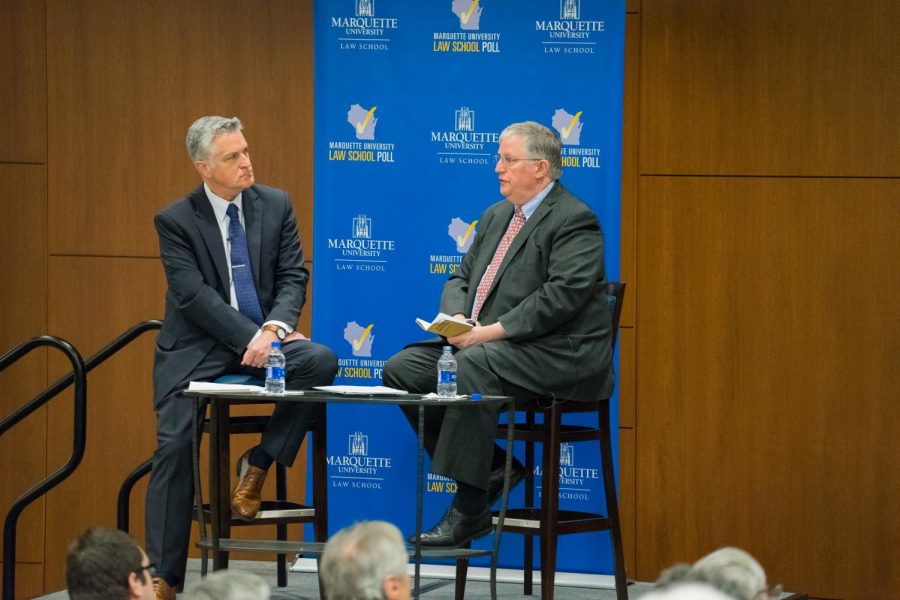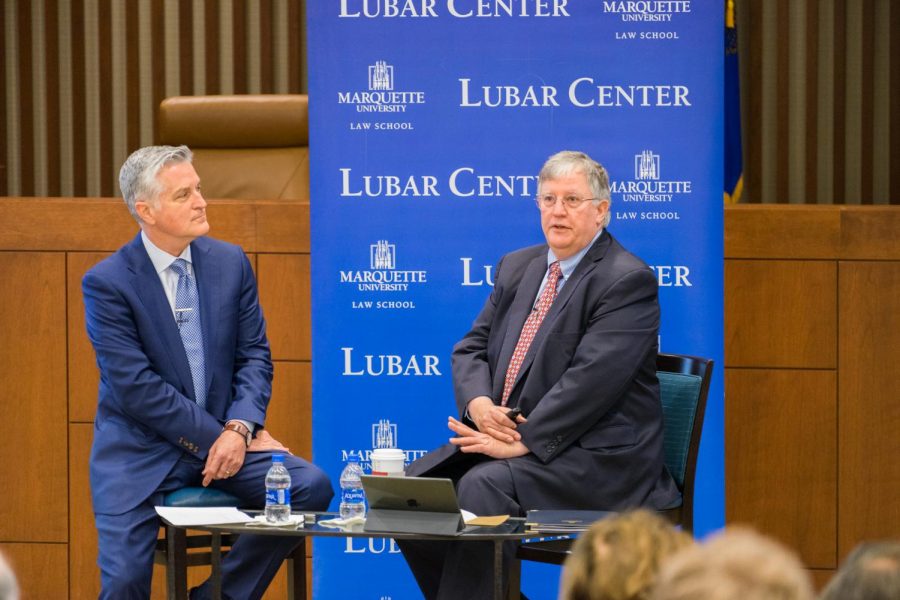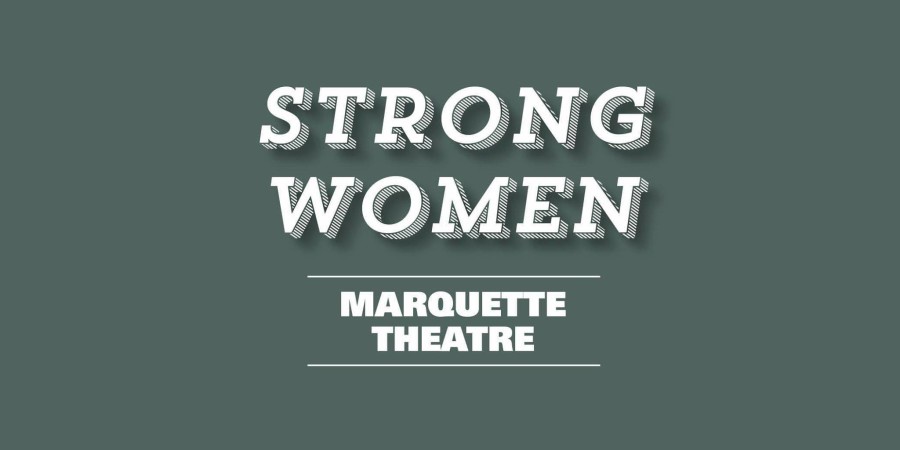
As they told stories of priests’ concerns over sinfully tight sweaters and a student union building where women were unwelcome, four alumnae made it clear just how far women have come at Marquette.
Tuesday night’s “Living History: Marquette Women Through the Decades” panelist discussion included four women who graduated in different decades, who reflecting on their experiences at Marquette. The discussion was moderated by Mike Gousha, distinguished fellow in law and public policy at Marquette’s Law School.
The women discussed the difference between past and present treatment and expectations of women on campus.
When Ann Brandt Druml, a 1943 graduate of the College of Nursing, attended Marquette, on-campus housing was only for men. Druml was housed off campus and worked at St. Joseph’s Hospital in West Bend.
She said she still had to commute to campus for regular classes, which required coordinating with other women who had access to cars.
“It was hard to travel back and forth,” Druml said. “It really was.”
Sandy Zilg Pavlic, a 1951 graduate of the College of Arts & Sciences, said women were expected to wear sweaters and skirts.
They were not allowed to wear slacks except “in the coldest of weather,” she said, and then only to the library or the union — never to class.
Priests on campus helped ensure women were presenting themselves appropriately and modestly.
Pavlic said in one instance, a priest took her aside to talk to her about a sweater she was wearing that would be considered baggy compared to modern sweaters.
“He took me aside one day and said, ‘Sandy, I don’t think you should wear that sweater anymore. It could be an occasion of sin.’”
Early on, some parts of campus were unfriendly to women.
Pavlic said female students would be glared at if they entered certain parts of the union viewed as men-only areas.
But by the 1960s, women were becoming a more accepted part of campus, said Patricia Kennedy Kraninger, a 1968 graduate of the College of Speech, which became part of the College of Communication in 1988.
“To me it was such an empowerment to be a woman here in the 1960s,” Kraninger said. “If you wanted to go out and do anything, (the deans) just empowered us to do it.”
The look and feel of campus when they were students differed significantly for each of the women.
During Pavlic’s time at Marquette, from 1947 to 1951, many veterans of World War II were returning to campus. Their return affected the overall atmosphere of campus, she said.
“We had a good time but there wasn’t a lot of frivolity,” Pavlic said. “They gave a sense of purpose to the campus.”
Kraninger said her time at Marquette was “tumultuous,” as both Milwaukee and the nation grappled with the women’s and civil rights movements.
She said at one point in the summer of 1967, as Milwaukee was plagued by race riots, her boyfriend called to say he was coming to get her and take her out of the city.
As he was on his way, Kraninger said she noticed a gunman on a nearby building.
“I said a prayer as (my boyfriend) was walking up the steps to get to me,” she said.
Kathleen Hintze Spears, a 1984 graduate of the College of Arts & Sciences, said she was struck by how the current campus looks compared to the one she remembers.
“This year was my 25th year reunion,” Spears said. “I was just marveling because the campus just looks fabulous. When I came here it was basically concrete.”
Students who attended the discussion were impressed by how women’s experiences had changed over the years.
“I thought it was really interesting to hear about how the women at first had almost nothing, then hearing the graduate from 1984 talk about how she felt so empowered to graduate,” said Bridget Gamble, a sophomore in the College of Arts & Sciences.
Asya Domingo, a sophomore in the College of Arts & Sciences, agreed.
“I really liked hearing about how it changed through the years,” Domingo said. “How when they first got here and they had a dress code and all those restrictions, then later on the women just felt like they could do anything after coming here.”





